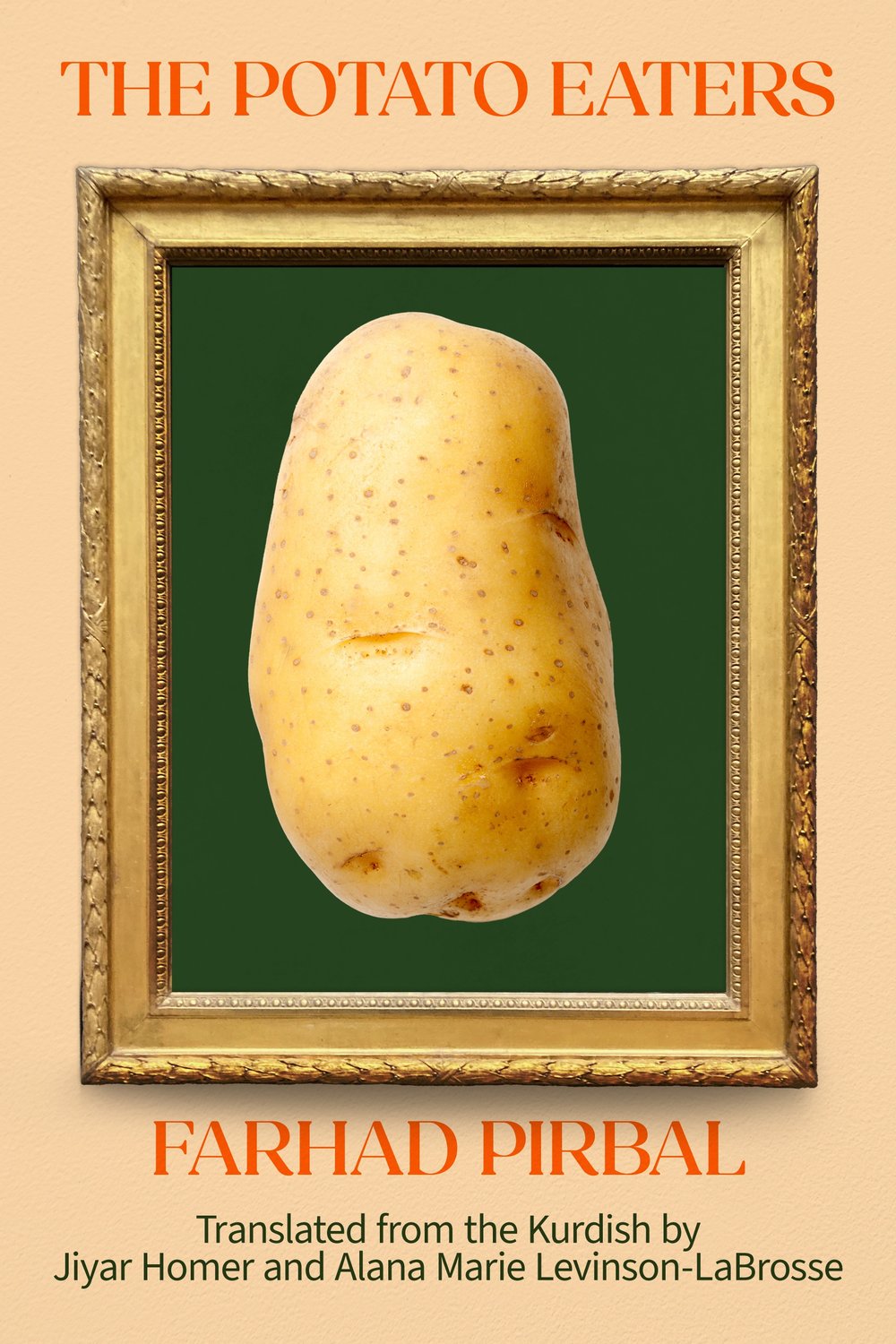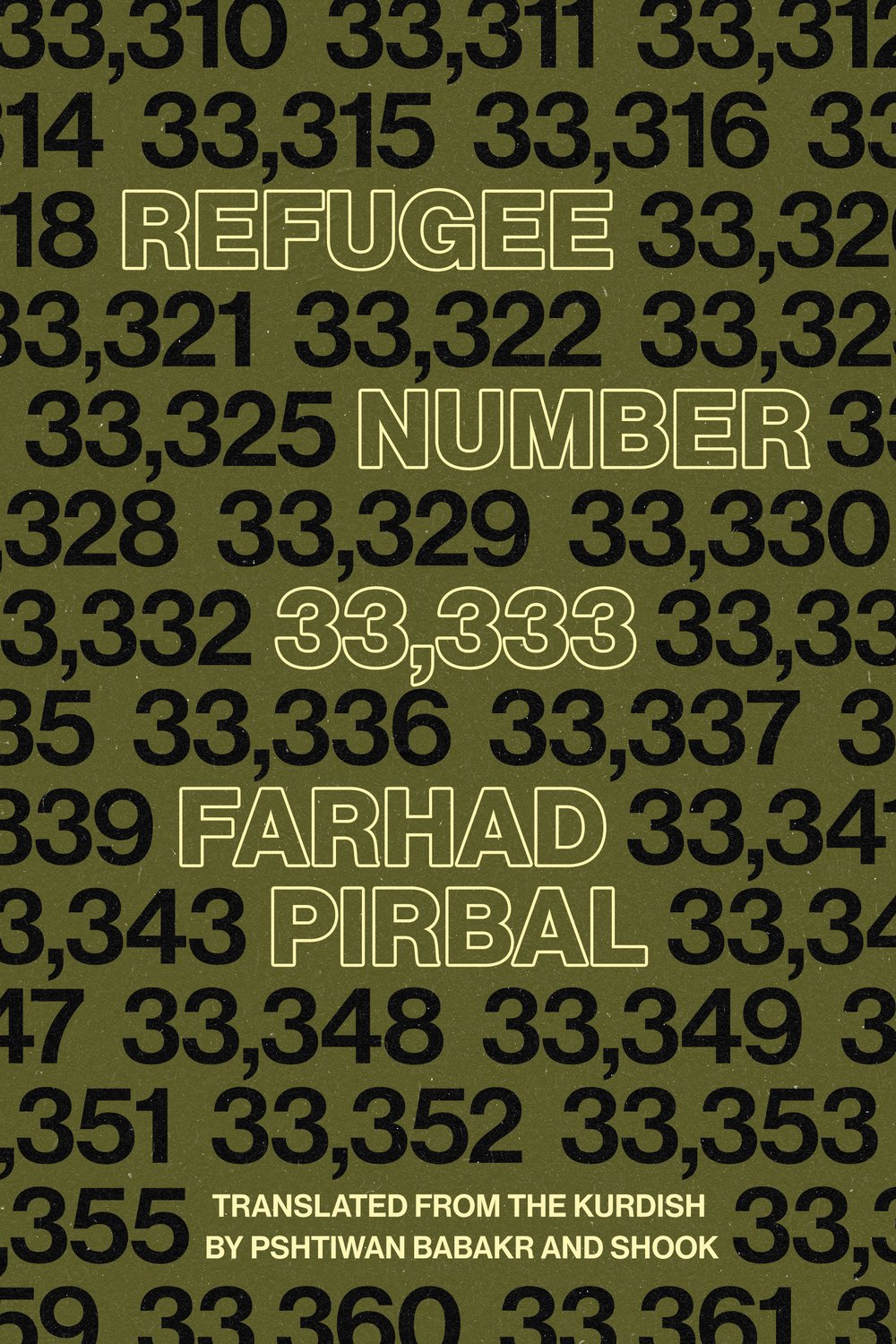The Potato Eaters
Stories

From Kurdish poet and writer Farhad Pirbal, a heartbreaking collection of short stories.
Each tale in The Potato Eaters underlines “otherness”, or isolation and displacement in contemporary society. His characters are at once resonant and shocking, his ability to decry trauma reminiscent of American greats like Morrison and Hurston.
The title story from this collection is one of the most acclaimed Kurdish short stories; it features a town that, due to famine, only survives on potatoes. The community comes to appreciate the base cuisine and abandon currency for their coveted starch. When the story’s protagonist returns from his travels, he brings gold home and he is met with utter apathy; he is a stranger in his own country.
“Lamartine” tells the story of a struggling poetry expert with a PhD on Lamartine’s lines in search of a lucrative career. He has trouble finding the right words to get a job. He visits a local career agency and in plain verse, asks for a career; he and the agent imagine a world wherein poets are paid by the line instead of the hour, a world in which artists always have a steady income. After the encounter, he says to a statue of his hero, “we really do live pitifully, us all like us, artists and poets. Often I have thought that a demon, at the beginning of time, must have nursed us: misfortune our first milk.”
“The Deserter” spotlights a forgetful soldier struggling to find his lost leg in 1989. He hobbles for nearly ten days until his Corporal informs him to prepare for war. “How?”, he wonders. The two go in search for a new leg, scavenging through piles of human body parts. In war, all warriors lose pieces of themselves: legs, arms, minds, hearts and souls. He reflects on his station: “My generation and I…we are the sacrifice of our era; the sacrifice to war and the dirty battles of those fools and frauds we call today’s leaders.” The story ends there—without resolution. This finality parallels the ramifications of war: stories and lives cut short, questions left unanswered.

Farhad Pirbal (born 1961) is an iconic Kurdish writer, poet, painter, critic, singer, and scholar, who has lived in Kurdistan, Iraq, Iran, Syria, Germany, Denmark, and France, where he obtained his Ph.D. in History of Contemporary Kurdish Literature at the Sorbonne. Publishing since 1979, Pirbal has authored more than seventy books of writing and translation and serves as one of Kurdistan’s farthest-reaching voices. In 1994, he founded the Sharafkhan Bidlisi Cultural Center in Hawler. In 2024, marking his English-language debut, Deep Vellum will publish his collected poems, Refugee Number 33,333, and his debut short story collection, The Potato Eaters.
Jiyar Homer is a translator and editor from Kurdistan, a member of Kashkul, the Center for Arts and Culture at the American University of Iraq, Sulaimani (AUIS), and an editor at Îlyan magazine and the Balinde Poetry publishing house. He speaks Kurdish, English, Spanish, Portuguese, Arabic, and Per-sian. He specializes in translating Latin American literature into Kurdish and Kurdish literature into various languages, bringing over one hundred authors into publication in more than thirty countries. His book-length translations include works by Juan Carlos Onetti, Carlos Ruiz Zafón, Farhad Pirbal, and Sherzad Hassan. Additionally, he is a member of Kurdish PEN.
Alana Marie Levinson-LaBrosse is a poet, translator, and professor. She holds a Ph.D. in Kurdish Studies from the University of Exeter. Her book-length works include Kajal Ahmed's Handful of Salt (2016), Abdulla Pashew's Dictionary of Midnight (2019), and Something Missing From This World: An Anthology of Contemporary Êzîdî Poetry (2024). Her writing has appeared in Modern Poetry in Trans-lation, World Literature Today, Plume, Epiphany, The Iowa Review, and Words Without Borders. She serves as the Founding Director of Kashkul and Slemani’s UNESCO City of Literature. She is a 2022 NEA Fellow, the first ever working from the Kurdish.

